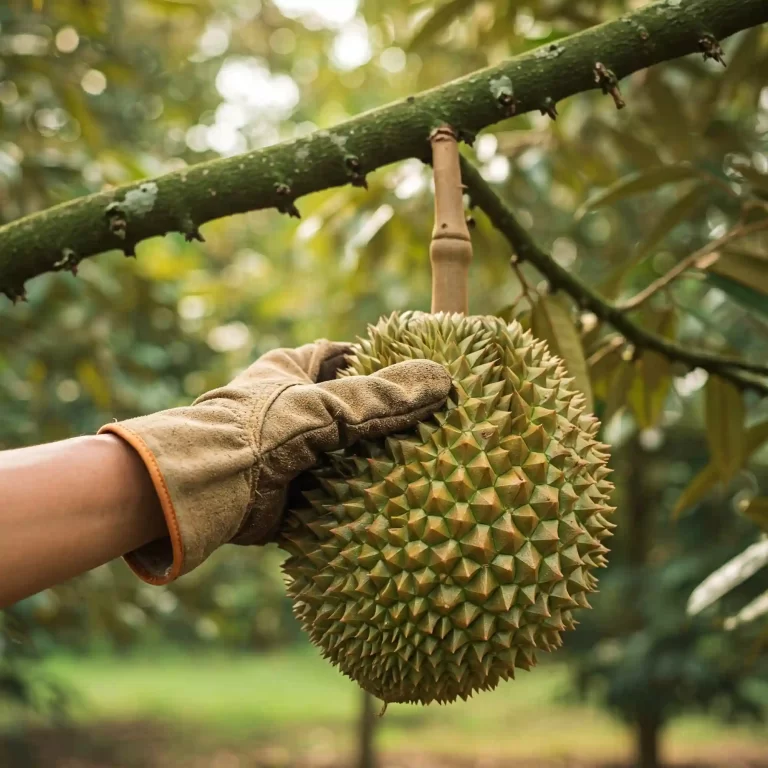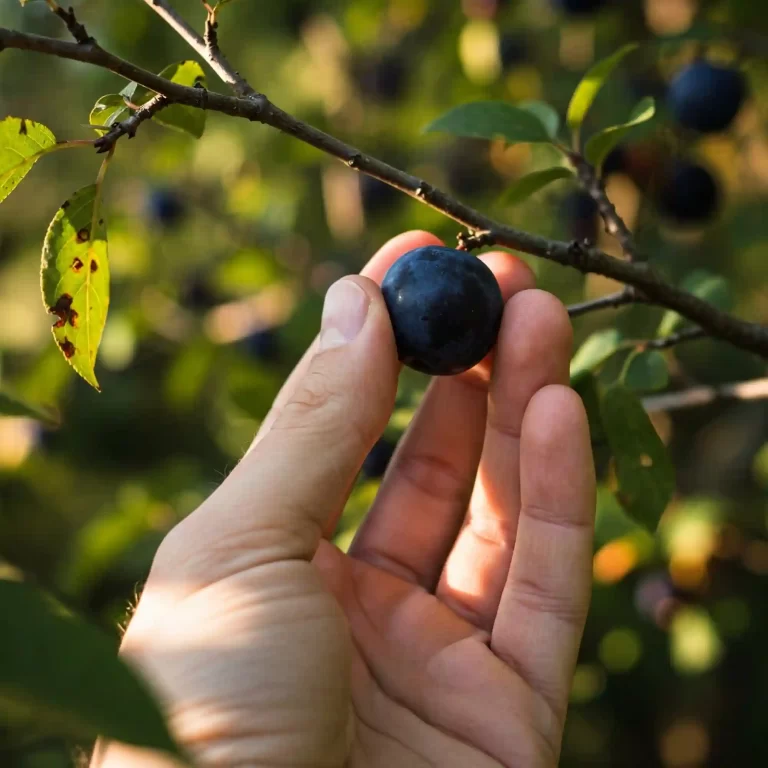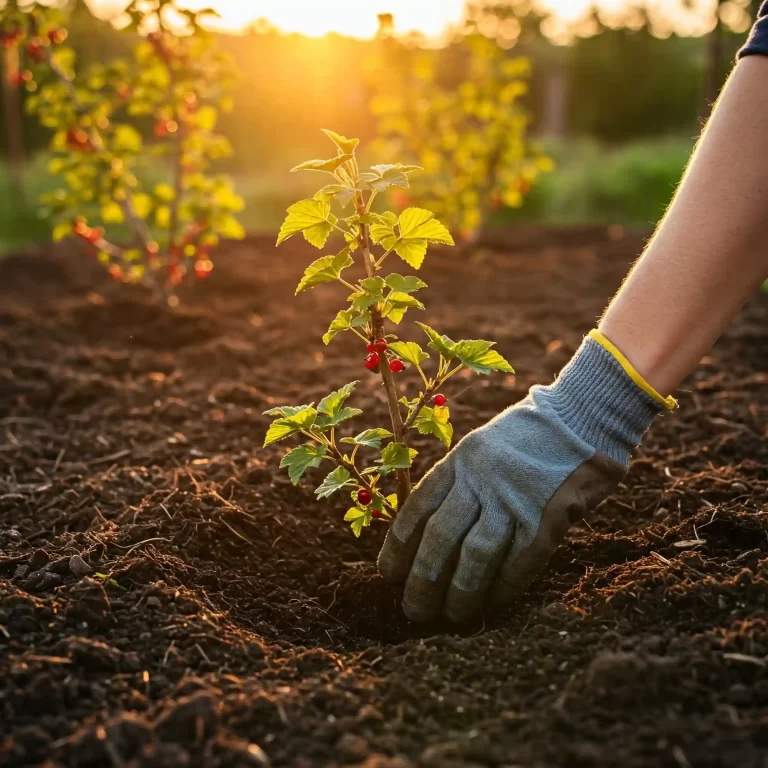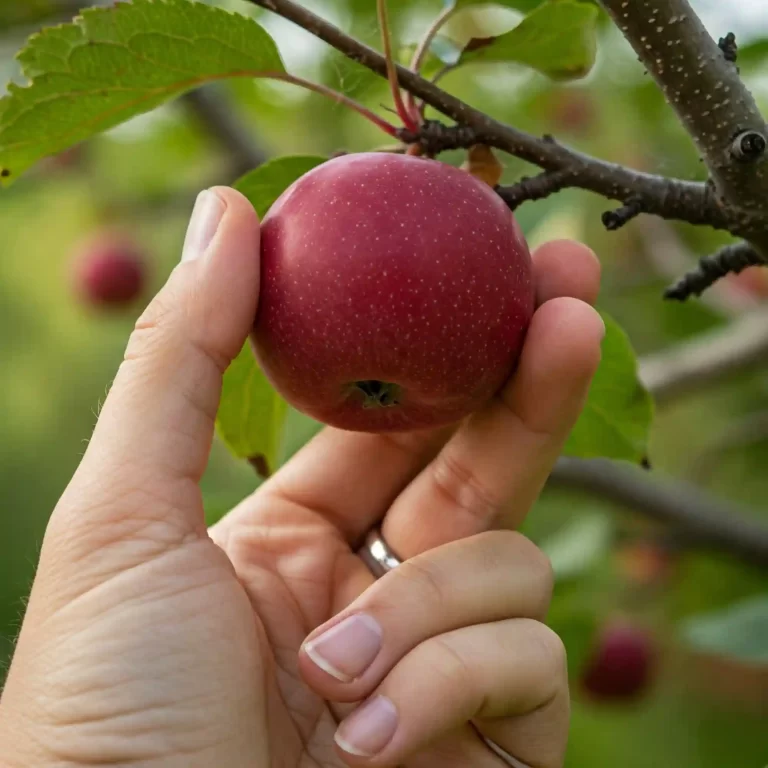Finding fresh, high-quality produce and plants can be a challenge, especially with the rise of industrial farming and mass-produced goods. Many people are concerned about the environmental impact and the quality of the food and plants they bring into their homes.
It’s frustrating to buy fruits and vegetables that lack flavor or plants that don’t thrive because they weren’t grown in the right conditions. You might feel disconnected from the source of your food and unsure about the sustainability of your purchases.
Local farms and nurseries offer a fantastic alternative. By supporting these local businesses, you can enjoy fresher, more flavorful produce and healthier plants while contributing to your community and the environment. This guide will help you discover the benefits of local farms and nurseries, how to find the best ones near you, and tips for making the most of your visits.
Why Support Local Farms & Nurseries?
Benefits of Buying Local Produce
When you buy produce from local farms, you’re not just getting fresher and tastier food; you’re also supporting your local economy and reducing your carbon footprint. Here are some key benefits:
- Fresher and Healthier Options: Local farms often harvest their produce at peak ripeness, ensuring that you get the freshest and most nutritious options. Unlike supermarket produce, which may travel long distances and sit in storage, local produce is often picked just days or even hours before it reaches your table.
- Supporting the Local Economy: By purchasing from local farms, you’re helping to keep money within your community. This support can lead to job creation and economic growth in your area. Local farmers reinvest their earnings into the community, creating a positive economic cycle.
- Reducing Carbon Footprint: Local produce doesn’t have to travel far to reach you, which means fewer greenhouse gas emissions from transportation. This reduction in carbon footprint is a significant step towards more sustainable living.
- Seasonal Eating: Buying locally encourages you to eat seasonally, which can be healthier and more environmentally friendly. Seasonal produce is often more flavorful and nutritious, and it supports the natural growing cycles of your region.
Advantages of Local Nurseries
Local nurseries offer a range of benefits that go beyond just providing plants. They are a valuable resource for gardeners of all levels. Here are some advantages:
- Access to Native and Adapted Plants: Local nurseries often stock plants that are well-suited to your region’s climate and soil conditions. This means they are more likely to thrive in your garden with less maintenance and fewer resources.
- Expert Advice and Personalized Service: Staff at local nurseries are usually knowledgeable about the plants they sell and can offer valuable advice on plant care, pest control, and garden design. This personalized service can be incredibly helpful, especially for novice gardeners.
- Community Engagement and Educational Opportunities: Many local nurseries offer workshops, classes, and events that can help you learn more about gardening and sustainable practices. These opportunities can also help you connect with other gardeners in your community.
- Supporting Local Businesses: Just like with local farms, buying from local nurseries helps support your community’s economy. It ensures that these valuable resources remain available for future generations.
Finding the Best Local Farms & Nurseries
How to Locate Nearby Farms and Nurseries
Finding the best local farms and nurseries can be a rewarding experience. Here are some tips to help you locate them:
- Using Online Directories and Maps: Websites like LocalHarvest, Farmstand, and Google Maps can help you find local farms and nurseries. These platforms often provide reviews, contact information, and details about the products and services offered.
- Recommendations from Local Gardening Clubs and Communities: Joining local gardening clubs or online gardening communities can be a great way to get recommendations. Fellow gardeners can share their experiences and suggest the best places to buy plants and produce.
- Visiting Farmers Markets and Local Events: Farmers markets are excellent places to meet local farmers and nursery owners. You can ask questions, sample products, and get a sense of the quality and variety available. Local events, such as garden tours and plant sales, can also be great opportunities to discover new sources.
What to Look for in a Local Farm or Nursery
When choosing a local farm or nursery, consider the following factors to ensure you get the best quality and service:
- Quality and Variety of Products: Look for farms and nurseries that offer a wide range of high-quality products. This variety can include different types of produce, plants, seeds, and gardening supplies.
- Sustainable and Organic Practices: Farms and nurseries that use sustainable and organic practices are better for the environment and often produce healthier, more flavorful products. Look for certifications or ask about their growing methods.
- Customer Reviews and Ratings: Online reviews and ratings can provide valuable insights into the quality of products and customer service. Look for consistently positive feedback and pay attention to any recurring issues mentioned by customers.
- Knowledgeable Staff: A knowledgeable and friendly staff can make a big difference in your shopping experience. They can provide expert advice, answer your questions, and help you make informed decisions.
What to Expect When Visiting Local Farms & Nurseries
Seasonal Produce and Plants
Understanding the seasonal availability of produce and plants can help you plan your visits and make the most of what local farms and nurseries have to offer:
- Seasonal Availability: Different fruits, vegetables, and plants are available at different times of the year. Knowing what’s in season can help you choose the freshest and most flavorful options. For example, strawberries might be at their peak in spring, while pumpkins are best in the fall.
- Planning Visits According to Planting and Harvesting Seasons: Timing your visits to coincide with planting and harvesting seasons can ensure you get the best selection. For instance, visiting a nursery in early spring can help you find the best seedlings for your garden, while a fall visit to a farm might offer a bounty of freshly harvested produce.
Activities and Experiences
Local farms and nurseries often offer a range of activities and experiences that can make your visit more enjoyable and educational:
- Farm Tours and Pick-Your-Own Experiences: Many farms offer tours that allow you to see how they operate and learn about their growing practices. Pick-your-own experiences can be a fun way to gather fresh produce and spend time outdoors.
- Workshops and Gardening Classes: Nurseries often host workshops and classes on various gardening topics, such as plant care, pest control, and garden design. These educational opportunities can help you improve your gardening skills and knowledge.
- Family-Friendly Activities and Events: Farms and nurseries frequently organize events that are fun for the whole family, such as harvest festivals, plant sales, and children’s gardening activities. These events can be a great way to introduce kids to gardening and sustainable living.
Tips for Shopping at Local Farms & Nurseries
Buying Fresh Produce
When shopping for fresh produce at local farms, keep these tips in mind to ensure you get the best quality:
- Selecting the Best Fruits and Vegetables: Look for produce that is firm, brightly colored, and free from blemishes. Ask the farmers about their harvesting practices and how to store the produce for maximum freshness.
- Understanding Pricing and Seasonal Deals: Prices can vary depending on the season and availability. Look for seasonal deals and bulk discounts, which can offer great value. Don’t hesitate to ask about any specials or promotions.
- Building Relationships with Farmers: Developing a relationship with local farmers can lead to better deals and insider tips on the best produce. Regular customers might even get access to limited or special items.
Choosing Plants for Your Garden
Selecting the right plants for your garden is crucial for success. Here are some tips to help you make the best choices:
- Selecting the Right Plants for Your Climate and Soil: Choose plants that are well-suited to your local climate and soil conditions. Local nurseries can provide recommendations based on their knowledge of the area.
- Tips for Healthy Plant Care and Maintenance: Ask nursery staff for advice on plant care, including watering schedules, fertilization, and pest control. Proper care can help your plants thrive and reduce the risk of disease.
- Understanding Plant Labels and Classifications: Plant labels provide important information about the plant’s needs and characteristics. Learn how to read these labels to make informed decisions about which plants to buy.
Supporting Sustainable Practices
Importance of Sustainable Farming and Gardening
Sustainable farming and gardening practices are essential for protecting the environment and ensuring long-term food security. Here are some key points to consider:
- Benefits of Organic and Sustainable Practices: Organic and sustainable farming methods reduce the use of harmful chemicals, conserve water, and promote biodiversity. These practices can lead to healthier soil, plants, and ecosystems.
- How Local Farms and Nurseries Contribute to Sustainability: Many local farms and nurseries prioritize sustainable practices, such as crop rotation, composting, and integrated pest management. Supporting these businesses helps promote environmentally friendly agriculture.
How to Support Sustainable Businesses
There are several ways you can support sustainable farms and nurseries:
- Choosing Organic and Sustainably Grown Products: Look for products that are certified organic or labeled as sustainably grown. These products are often better for your health and the environment.
- Participating in Community-Supported Agriculture (CSA) Programs: CSA programs allow you to buy a share of a farm’s produce in advance. This support helps farmers plan their crops and ensures you get a regular supply of fresh, seasonal produce.
- Volunteering and Supporting Local Initiatives: Many farms and nurseries offer volunteer opportunities, such as helping with planting, harvesting, or educational programs. volunteering can be a rewarding way to support sustainable agriculture and learn more about farming and gardening practices. Additionally, you can support local initiatives by participating in community events, donating to local agricultural organizations, and advocating for policies that promote sustainable farming.
Frequently Asked Questions (FAQs)
What are the best local farms and nurseries near me?
Finding the best local farms and nurseries can be a personalized experience, as it depends on your location and specific needs. Here are some tips to help you discover top-rated options:
- Online Directories and Reviews: Websites like Yelp, Google Maps, and LocalHarvest provide reviews and ratings for local farms and nurseries. Look for businesses with high ratings and positive feedback from customers.
- Community Recommendations: Ask friends, family, and local gardening clubs for recommendations. Personal experiences can provide valuable insights into the quality and service of local businesses.
- Farmers Markets and Local Events: Visiting farmers markets and local gardening events can help you meet farmers and nursery owners in person. This direct interaction allows you to ask questions and get a feel for the quality of their products.
How can I support local farms and nurseries?
Supporting local farms and nurseries is beneficial for your community and the environment. Here are some ways you can contribute:
- Buy Local Products: Purchase produce, plants, and gardening supplies from local farms and nurseries. This support helps keep these businesses thriving.
- Join CSA Programs: Community-supported agriculture (CSA) programs allow you to buy a share of a farm’s produce in advance. This support helps farmers plan their crops and ensures you get a regular supply of fresh, seasonal produce.
- Volunteer: Many farms and nurseries offer volunteer opportunities. Helping with planting, harvesting, or educational programs can be a rewarding way to support sustainable agriculture.
- Spread the Word: Share your positive experiences with friends, family, and on social media. Word-of-mouth recommendations can help local farms and nurseries attract more customers.
What should I look for when buying plants from a nursery?
Choosing the right plants for your garden is crucial for success. Here are some factors to consider:
- Plant Health: Look for plants that are healthy and free from pests and diseases. Check for vibrant, green leaves and strong stems.
- Climate and Soil Suitability: Choose plants that are well-suited to your local climate and soil conditions. Local nurseries can provide recommendations based on their knowledge of the area.
- Plant Labels: Read plant labels carefully to understand the plant’s needs and characteristics. This information can help you make informed decisions about which plants to buy.
- Expert Advice: Ask nursery staff for advice on plant care, including watering schedules, fertilization, and pest control. Their expertise can help you ensure your plants thrive.
Are there any family-friendly activities at local farms?
Many local farms offer a range of family-friendly activities that can make your visit enjoyable and educational:
- Farm Tours: Guided tours allow you to see how the farm operates and learn about sustainable farming practices. These tours can be both fun and educational for children and adults.
- Pick-Your-Own Experiences: Many farms offer pick-your-own experiences, where you can harvest your own fruits and vegetables. This activity can be a fun way to spend time outdoors and teach children about where their food comes from.
- Workshops and Classes: Farms and nurseries often host workshops and classes on various gardening topics. These educational opportunities can help you and your family learn more about gardening and sustainable living.
- Seasonal Events: Farms frequently organize seasonal events, such as harvest festivals, plant sales, and children’s gardening activities. These events can be a great way to introduce kids to gardening and sustainable living.
How do I know if a farm or nursery is sustainable?
Determining whether a farm or nursery practices sustainable methods can involve looking for certain indicators and asking specific questions:
- Certifications: Look for certifications such as USDA Organic, Certified Naturally Grown, or other sustainability certifications. These labels indicate that the farm or nursery adheres to specific sustainable practices.
- Growing Practices: Ask about the farm’s or nursery’s growing practices. Sustainable practices include crop rotation, composting, integrated pest management, and reduced use of synthetic chemicals.
- Local and Seasonal Products: Farms and nurseries that focus on local and seasonal products are often more sustainable. These practices reduce the need for long-distance transportation and support the natural growing cycles of the region.
- Community Involvement: Sustainable farms and nurseries often engage with their local communities through educational programs, volunteer opportunities, and community-supported agriculture (CSA) programs. This involvement can be a good indicator of their commitment to sustainability.
Conclusion
Supporting local farms and nurseries offers numerous benefits, from enjoying fresher and healthier produce to contributing to your community’s economy and sustainability. By understanding the advantages of buying local, knowing how to find the best farms and nurseries, and learning how to support sustainable practices, you can make informed choices that benefit both you and the environment.
I encourage you to explore the local farms and nurseries in your area, build relationships with the farmers and nursery owners, and take advantage of the educational and community opportunities they offer. By doing so, you’ll not only enhance your gardening experience but also contribute to a more sustainable and connected community.
Thank you for taking the time to read this comprehensive guide. I hope it has provided you with valuable insights and inspiration to support local farms and nurseries. Happy gardening!



